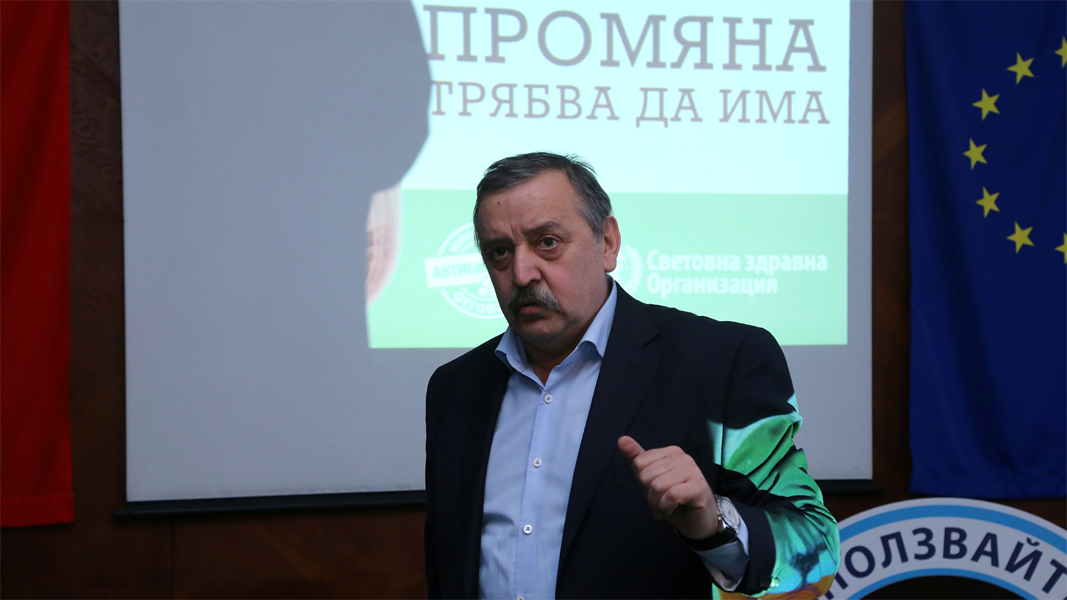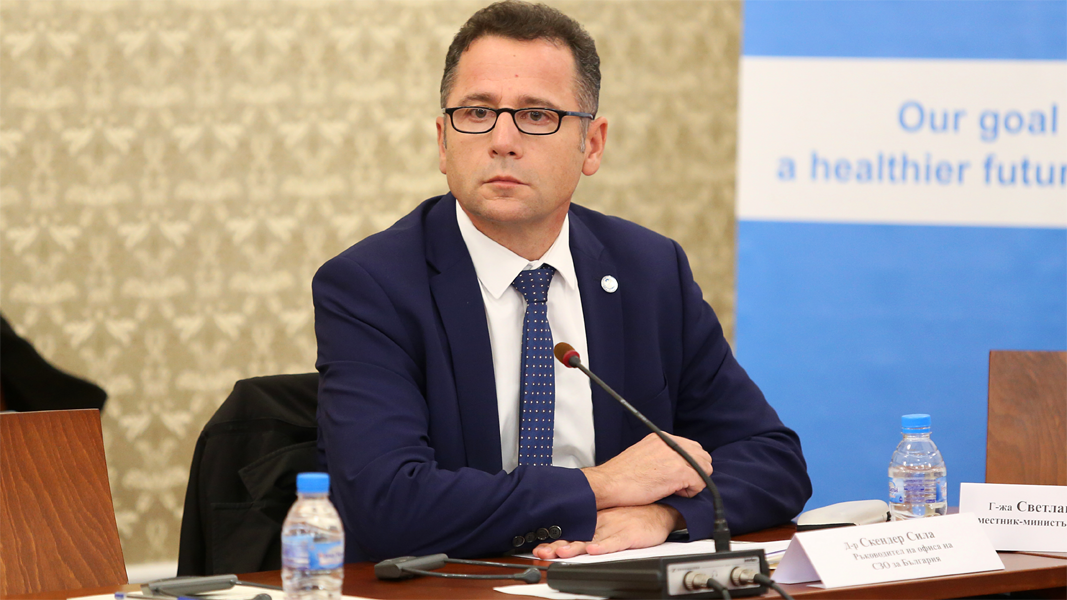Dozens of people fall ill and die every day in Bulgaria due to infections which are no longer responsive to antibiotic treatment. The diminishing effectivity of this kind of medicine is due to its abuse. If the indiscriminate usage of antibiotics continues at the same rate, just a few decades from now the so-called antimicrobial resistance will turn into a bigger threat to the human race than cancer.
On European Antibiotic Awareness Day, 18 November, specialists are raising the alarm of the danger posed by the indiscriminate use of antibiotics, sending a message to doctors and patients.

“First, viral infections – a cold, practically any kind of throat ache, a dry cough without a fever or sputum, these are not treated using antibiotics,” says Prof. Todor Kantardjiev, Director of the Centre of Infectious and Parasitic Diseases. “Second, all antibiotics are prescribed by a doctor. And doctors should adhere to the following rules: they should find out which microbes to treat with the antibiotic, localize the infection so that the antibiotic may penetrate most of all into the area affected, find out what the general health status of the patient is and what other medicines they are prescribing an antibiotic in combination with, and they must be able to make an economic assessment because the most expensive antibiotics are not necessarily the best.”
The average quantities of antibiotics prescribed in this country are comparable to levels in Europe though not with regard to those antibiotics effective against multiple pathogens.
“We have been seeing a negative tendency over the past two years – quite a few doctors in outpatient care for children and adults have been prescribing antibiotics (third generation cephalosporins) which are taken once a day,” Prof. Todor Kantardjiev says further. “But these broad-spectrum medicines are no better in the treatment of tonsilitis or scarlet fever, for example, compared to other kinds of antibiotics taken 3-4 times a day. As to hospitals, even though we do not use more antibiotics in total, than the average European standards, we use the biggest amounts of broad-spectrum antibiotics in Europe – twice as much as in most other countries.”
To address this problem, this week the Centre of Infectious and Parasitic Diseases is starting computer training for doctors. The national plan of action against antimicrobial resistance is now ready and is expected to be approved by the government by the end of the year, Deputy Minister of Health Svetlana Yordanova announced. The document aims to raise awareness of the use of antibiotics in human and in veterinary medicine. Another step aims to strengthen supervision in prescribing medicines by way of more prevention at medical establishments. Other initiatives envisaged include awareness campaigns, methodological training and instructions on how to use antibiotics.

Unless we change the way we think and start using antibiotics more wisely, antimicrobial resistance will cost the lives of 10 million people in the world by the mid-21st century. That is why, as Dr. Skender Sila, representative of the World Health Organization in this country says, the future of this kind of medicines is in our own hands:
Photos: BGNES
After almost 80 years, a new breeding colony of the endangered Dalmatian pelican has appeared in Bulgaria . The birds have settled on artificial islands built by the Bulgarian Society for the Protection of Birds (BSPB) in the Mandra-Poda Complex, a..
On 25 January 1935, Tsar Boris III signed the decree establishing the Bulgarian National Radio. The document, which officially marked the beginning of "Radio Sofia", as the Bulgarian National Radio (BNR) was then called, made radio broadcasting in Bulgaria..
The Federation of European Carnival Cities has declared Pernik a global center of masquerade traditions. 16 years ago, Prenik was named the European Capital of Sourvakar and Mummer Traditions, and nearly 10 years ago, the Surva festival was..
The Aviation Training Center at Sofia Airport has received accreditation from the Airports Council International (ACI) and joins the..
The Museum of the Bulgarian National Revival in Varna presents a collection of 15 authentic folk costumes from the collection of the..

+359 2 9336 661
